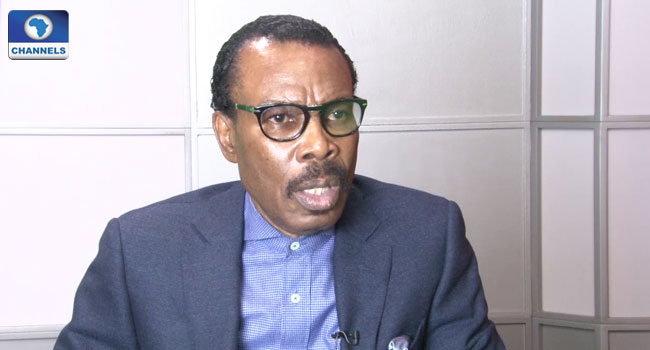
Activities in the three major sectors of the economy are expected to drive growth in the Nigerian economy this year, experts have said.
A renowned economist, Mr Bismarck Rewane, identified this year’s economic drivers as agriculture, manufacturing and telecommunications.
His view is shared by Manufacturers Association of Nigeria and the Association of Small Business Owners of Nigeria.
Rewane gave the indication during his presentation at the Public Relations Consultants Association of Nigeria’s breakfast meeting, which focused on the Nigerian Economic Outlook in 2020 and its implications for the marketing communications sector.
Listing some of the game-changing events that would shape growth of the Nigerian business economy in general in 2020, he noted that projects and initiatives of the government including construction projects such as the Lekki deep seaport, Lagos-Ibadan railway as well as the newly introduced Finance Act, border closure policies, the cost-reflective electricity tariff policies, and the cashless policy among others were bound to expand the economy and attract more foreign direct investment.
He, however, added that notwithstanding the likelihood of a slow Gross Domestic Product growth rate at 2.2 per cent, with the impact of government intervention policies, businesses were likely to increase spending on public relations, advertising and branding this year.
He said, “The three key sectors predicted to play significant roles in the growth process for the industry are the telecommunications, retail and Fast Moving Consumer Goods business.”
Rewane, who is a member of the Presidential Economy Advisory Council, noted that with government’s intervention policies and subsidies, more businesses would spring up which would necessitate increased spending on advertising and marketing communication
These, he said, would increase productivity in the industry and the country as a whole.
He said, “I believe with the Federal Government introducing intervention policies and subsidies, it is certain that more businesses would spring up which would consequently necessitate increased spending on advertising and marketing communications generally.”
X-raying the Nigerian economy vis-à-vis its standing 15 years ago, Rewane lamented that it was unfortunate that Nigeria as a country was still lagging behind on various economic fronts and indices, despite the fact that there were enough resources to achieve the numerous ‘2020’ goals set many years ago.
In a separate interview with our correspondent, the Association of Small Business Owners of Nigeria, also said if the government could give more attention to agriculture, it could serve as a forex earner for the country and take so many youths off the unemployment market
The association which spoke through its president, Dr Femi Egbesola, advised the government to further boost agriculture by providing farmers with modern equipment and re-introduce the moribund Consumer Boards, that would buy farm produce from farmers to sell to members of the public.
Egbesola said, “It requires a little to enter into agriculture. If government will support agriculture by providing the necessary equipment and resuscitate the old Consumer Boards, which normally bought off farm produce from farmers, to resell to members of the public, more people, especially the youth will come into that sector, and unemployment will be reduced.
“Again, agriculture can serve as foreign exchange earner for the government.”
In the same vein, the Manufacturers Association of Nigeria in its 2019 CEOs Confidence Index, emphasised the importance of backward integration, which meant many of the company fell back on the natural agriculture inputs in the manufacturing of their products.
They noted that the backward integration policy and the import substitution strategy of the government was gaining traction as evidenced by responses from CEOs of manufacturing concerns, as only 43 per cent of them disagreed with this.
“Government needs to sustain the implementation of the backward integration policy by properly funding relevant institutions, initiating policies that will give priority attention to the development of local raw-materials in commercial quantity, creating friendlier environment for investment on the value-chains of these materials as well as ensure that adequate forex is made available for importation of vital raw materials that are at the moment not available locally.”
They said the government also needed to strategically involve the private sector operators in the crafting and implementation of its backward integration policies to facilitate the creation of industry-friendly and enduring policies that would not erode the little gains made so far in the nation’s industrialisation drive

